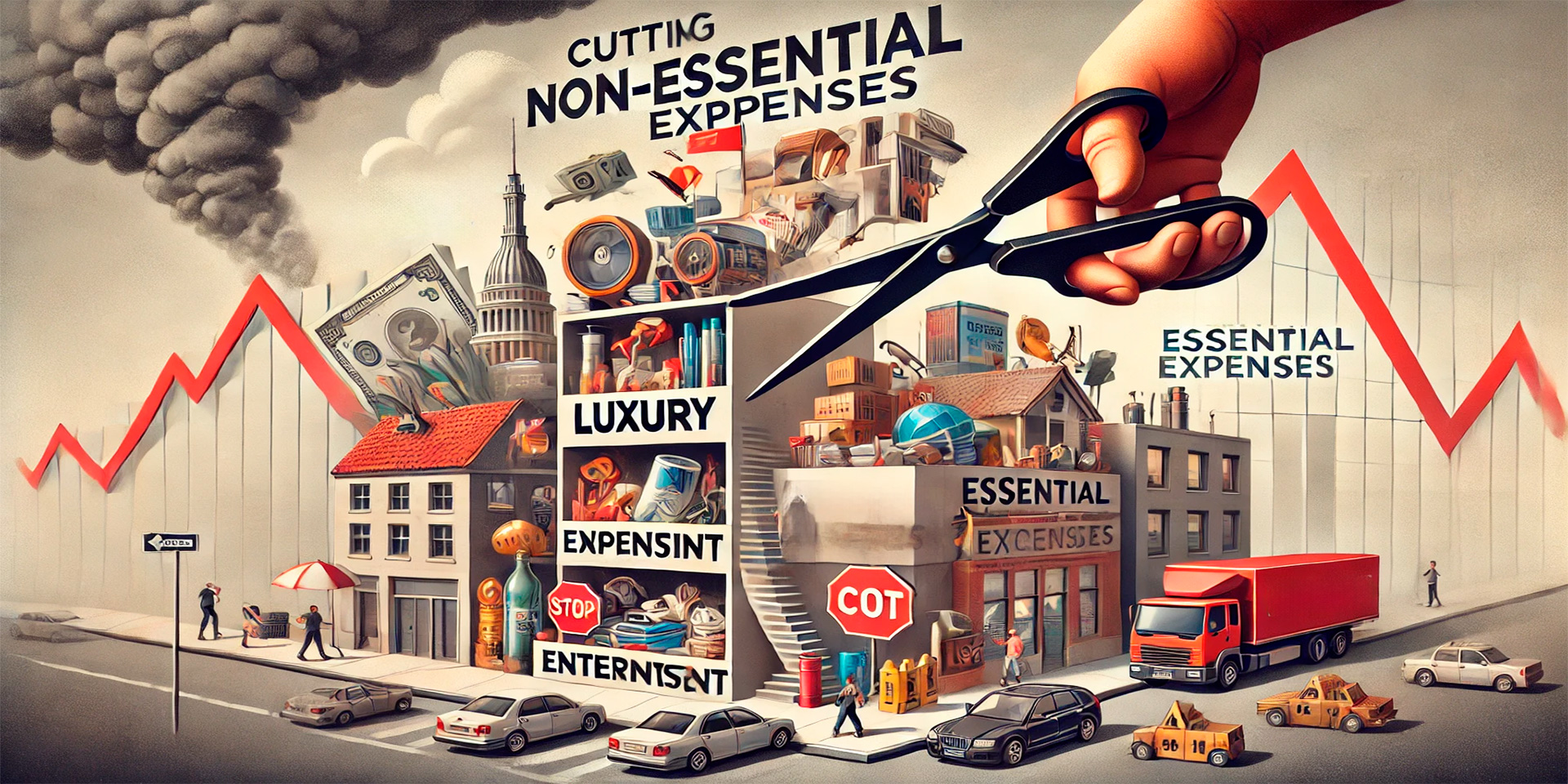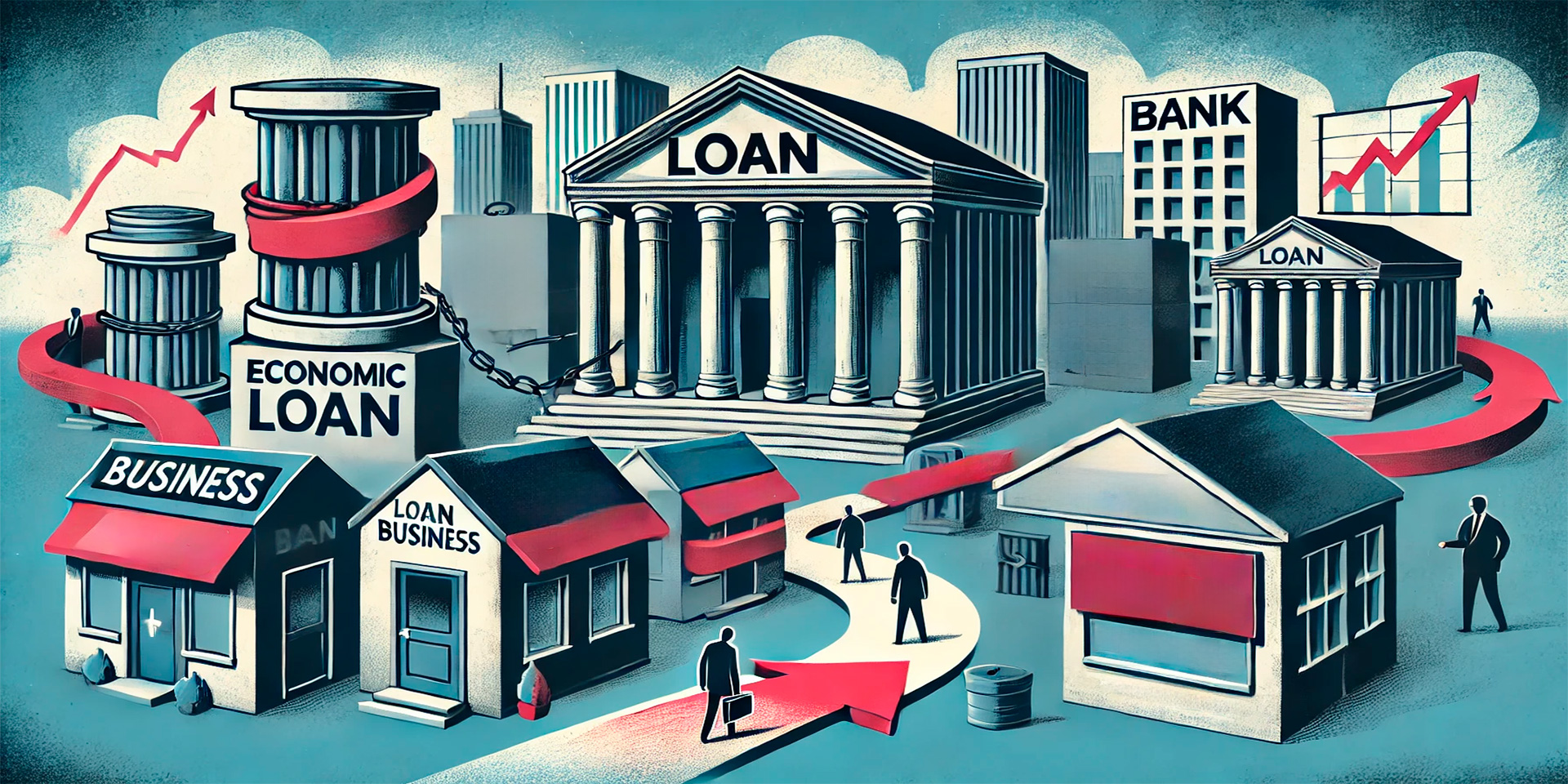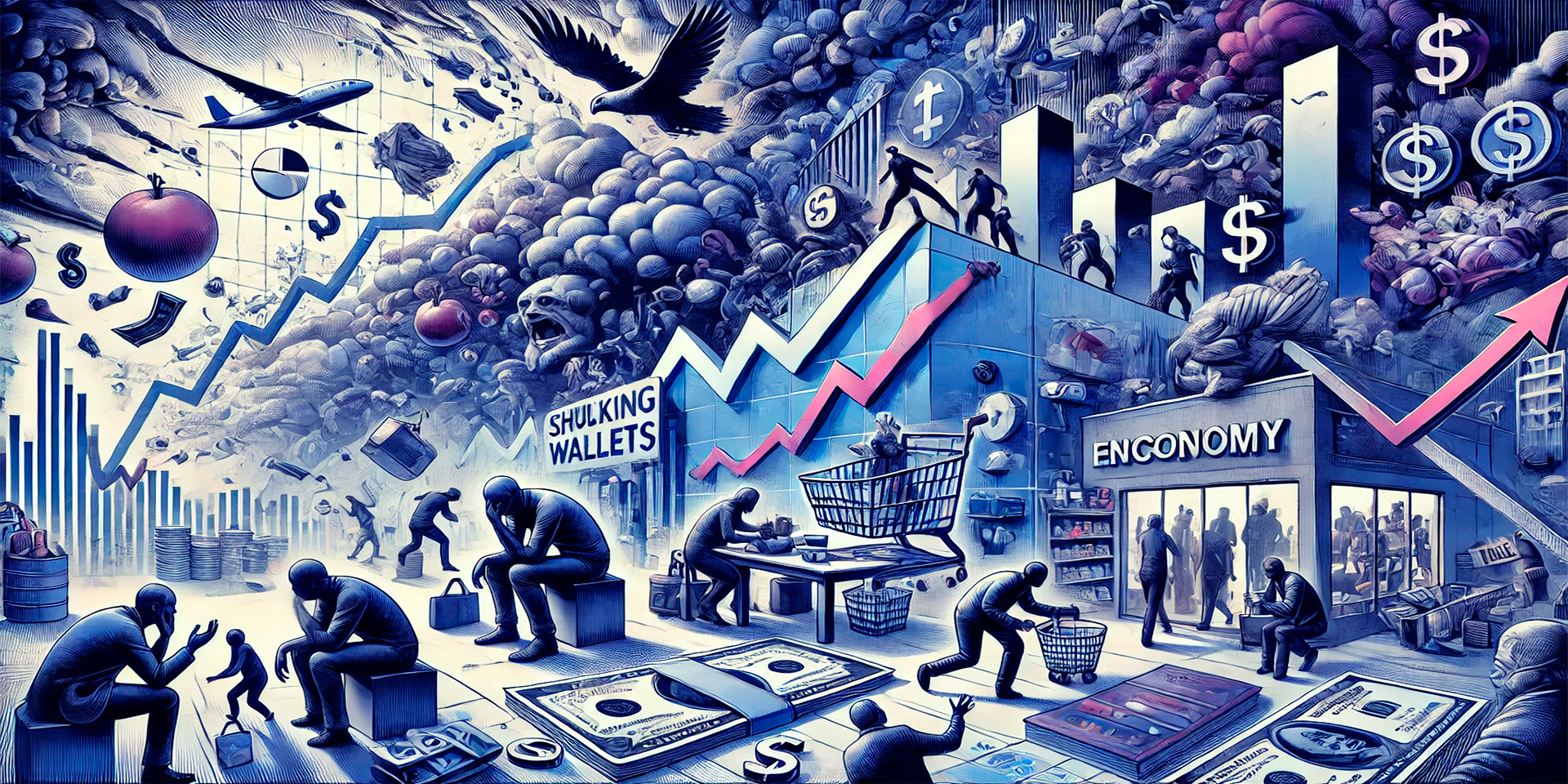Economic crises can put immense pressure on household and business finances. During these challenging times, cutting non-essential expenses becomes a vital strategy for improving financial security and ensuring stability. Whether it’s a global recession, inflation surge, or a market downturn, reducing expenses can help individuals and businesses maintain liquidity, avoid debt, and prepare for an uncertain future. In this article, we’ll explore why cutting expenses is critical during economic crises and provide practical strategies for trimming your budget.
The Importance of Financial Flexibility in a Crisis
One of the main reasons to reduce expenses during an economic crisis is to maintain financial flexibility. In times of economic uncertainty, income streams can be disrupted, jobs may be lost, and businesses might face declining sales. Having a flexible budget with lower outgoings allows you to adapt quickly to these changes, ensuring that you can still cover your essential expenses even if your financial situation worsens.
Preserving Liquidity for Essential Needs
Maintaining liquidity, or cash on hand, is crucial during an economic downturn. By cutting non-essential expenses, you can ensure that more of your income is available for essential needs such as housing, utilities, food, and healthcare. This extra liquidity provides a cushion that can help you weather the storm without resorting to credit or dipping into long-term savings.
For businesses, preserving liquidity allows for continued operations, including payroll, inventory, and critical services. Having cash reserves also provides flexibility to adapt to changing market conditions or capitalize on opportunities that arise during the crisis.
Avoiding Unnecessary Debt
Another critical reason to reduce expenses is to avoid accumulating unnecessary debt. During an economic crisis, it can be tempting to rely on credit to maintain your standard of living, but this can lead to long-term financial strain. High-interest debt, especially on credit cards or personal loans, can quickly compound, leaving you with significant financial obligations even after the crisis has passed.
By cutting non-essential spending, you reduce the need to borrow money, helping to protect your financial health in the long run. It’s important to prioritize paying down existing debt and avoid taking on new debt that could become difficult to manage later.
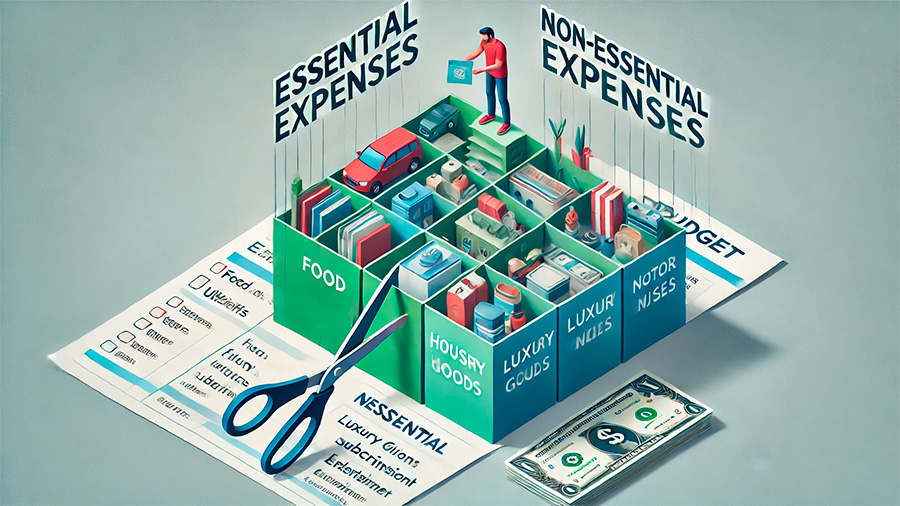
How to Identify and Cut Non-Essential Expenses
Trimming your budget starts with identifying which expenses are non-essential and can be reduced or eliminated without affecting your overall well-being or business operations. While some expenses are necessary for basic survival and maintaining business operations, others are discretionary and can be reduced during times of financial stress.
Evaluating Your Monthly Expenses
The first step in cutting non-essential costs is to evaluate your monthly expenses. For individuals, this might include looking at your bills, subscriptions, discretionary spending, and other financial commitments. For businesses, it involves analyzing operating costs such as office space, supplies, marketing, and non-critical services.
Once you’ve identified all your expenses, categorize them into essential and non-essential. Essential expenses are those necessary for survival or the basic functioning of your business, such as rent, utilities, insurance, and groceries. Non-essential expenses might include dining out, entertainment, luxury items, and non-critical business services.
Cutting Discretionary Spending
One of the easiest ways to reduce expenses during a crisis is by cutting discretionary spending. Discretionary expenses include things like dining out, entertainment, travel, and personal shopping. While these expenses may enhance your quality of life during stable times, they can often be reduced or eliminated during periods of economic uncertainty.
For example, you can replace dining out with cooking at home, cancel or pause unnecessary subscriptions, and hold off on major purchases until your financial situation improves. Reducing or eliminating these discretionary expenses can free up cash to cover more pressing needs.
Reevaluating Business Expenses
For businesses, cutting non-essential expenses may involve making tough decisions about operational costs. This could include renegotiating leases, cutting back on marketing campaigns, or postponing non-essential projects. It may also involve finding more cost-effective suppliers or reducing inventory to match reduced demand.
Additionally, businesses can consider remote work or hybrid models to reduce office space and utility costs. By streamlining operations, businesses can preserve cash flow and ensure they remain operational during the downturn.
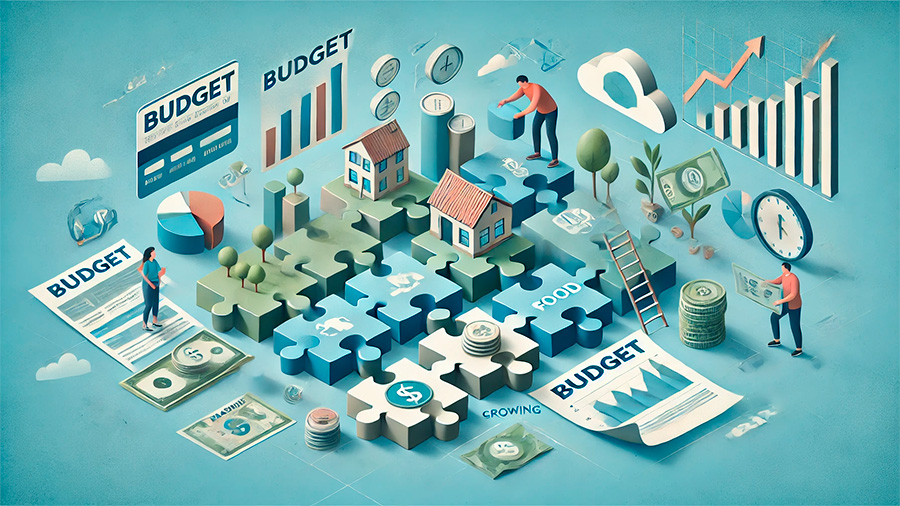
Building a Sustainable Budget for Tough Times
Once you’ve identified and cut non-essential expenses, it’s important to create a sustainable budget that can help you manage your finances throughout the crisis. A leaner budget not only helps you navigate the current challenges but also prepares you for future financial uncertainties.
Prioritizing Essential Expenses
Your budget should focus on prioritizing essential expenses, such as housing, food, healthcare, and utilities. For businesses, this means ensuring that payroll, core operations, and necessary supplies are maintained while cutting back on less critical areas.
By keeping essential expenses at the top of your budget, you can ensure that your basic needs are met, even if your income is reduced. This approach helps prevent financial emergencies and allows you to focus on longer-term recovery efforts.
Building an Emergency Fund
Reducing expenses during an economic crisis also presents an opportunity to build or reinforce your emergency fund. An emergency fund is a financial safety net that can cover unexpected expenses or provide income support if you lose your job or face a significant drop in revenue.
If possible, use the savings from cutting non-essential expenses to contribute to your emergency fund. A well-funded emergency savings account can provide peace of mind and stability during uncertain times, helping you avoid the need to rely on credit or loans.
The Long-Term Benefits of Cutting Expenses
While reducing expenses is critical during an economic crisis, it can also offer long-term financial benefits. By learning how to live more efficiently and streamline your spending, you can establish better financial habits that carry over into more stable times.
Increased Financial Discipline
One of the most valuable lessons from cutting expenses during a crisis is learning financial discipline. Once you’ve successfully reduced your non-essential spending, you’ll gain a better understanding of what expenses are truly necessary and how to manage your finances more effectively.
By continuing to apply these principles even after the crisis has passed, you can build greater financial resilience and be better prepared for future economic downturns.
Improved Savings and Investment Opportunities
Reducing your spending not only helps you weather a crisis but also opens up opportunities for savings and investments. With more cash on hand, you can start saving for future goals, such as retirement, buying a home, or investing in your business.
Additionally, cutting back on non-essential expenses can free up resources to take advantage of investment opportunities that may arise during or after a crisis. This approach can help you grow your wealth and strengthen your financial position over time.
Conclusion: Why Expense Reduction is Critical
In times of economic uncertainty, cutting non-essential expenses is a critical step toward financial security. By reducing discretionary spending, preserving liquidity, and avoiding debt, individuals and businesses can maintain greater financial flexibility and stability. Additionally, creating a sustainable budget and prioritizing essential needs helps ensure that you’re better prepared for whatever challenges lie ahead.
Whether you’re managing personal finances or running a business, taking proactive steps to reduce expenses during an economic crisis can help protect your financial health and position you for a faster recovery. The habits and strategies developed during tough times can also provide long-term benefits, helping you build a stronger financial foundation for the future.

